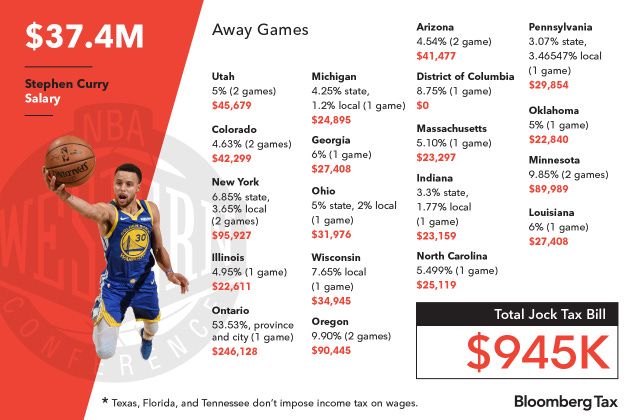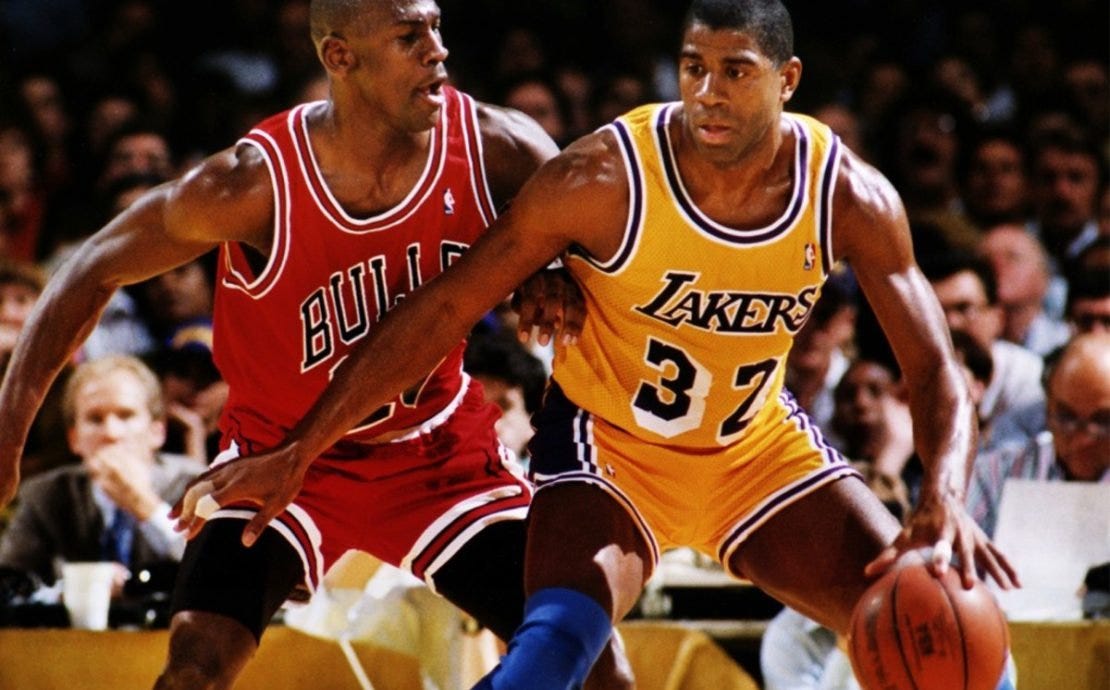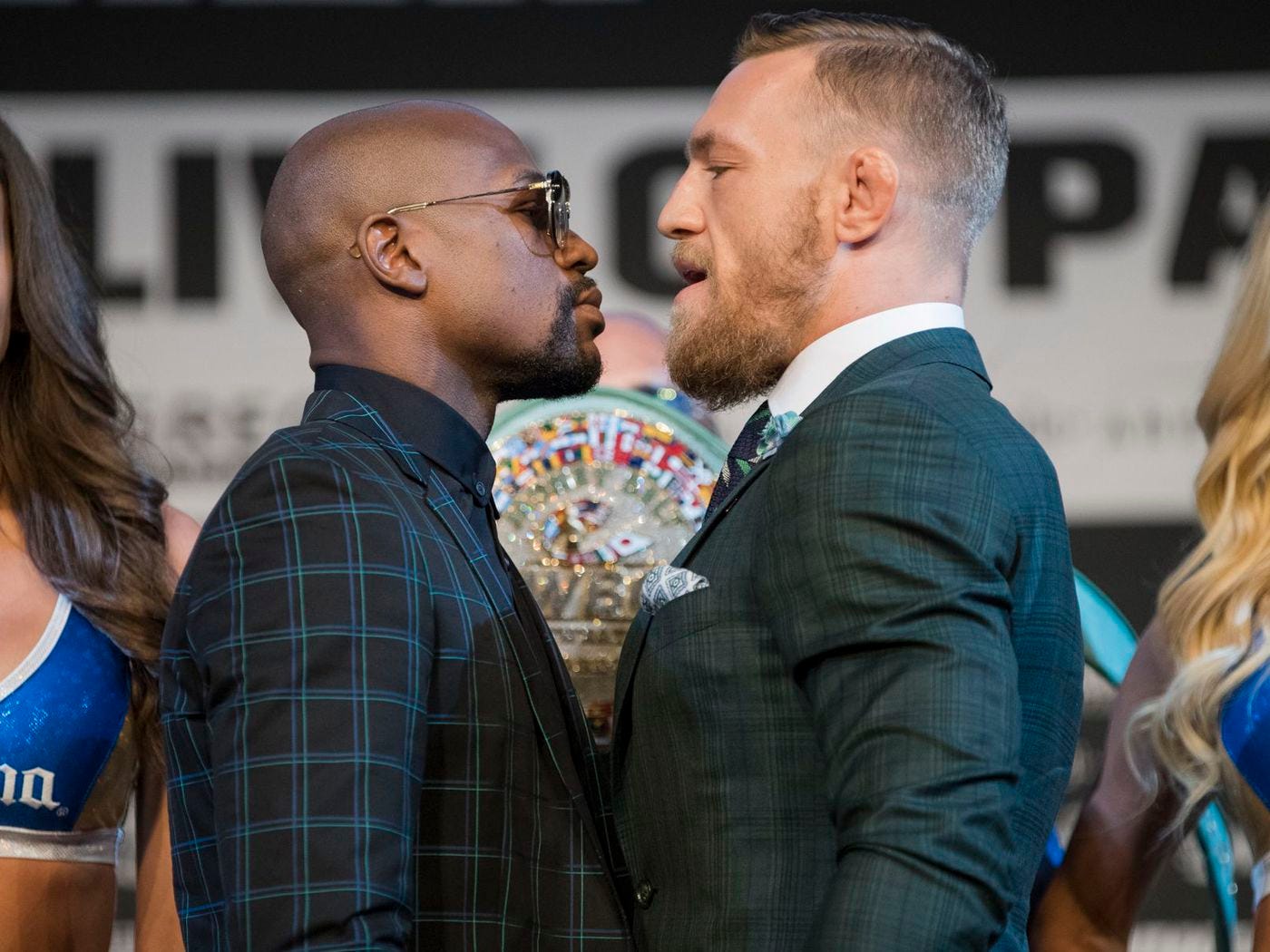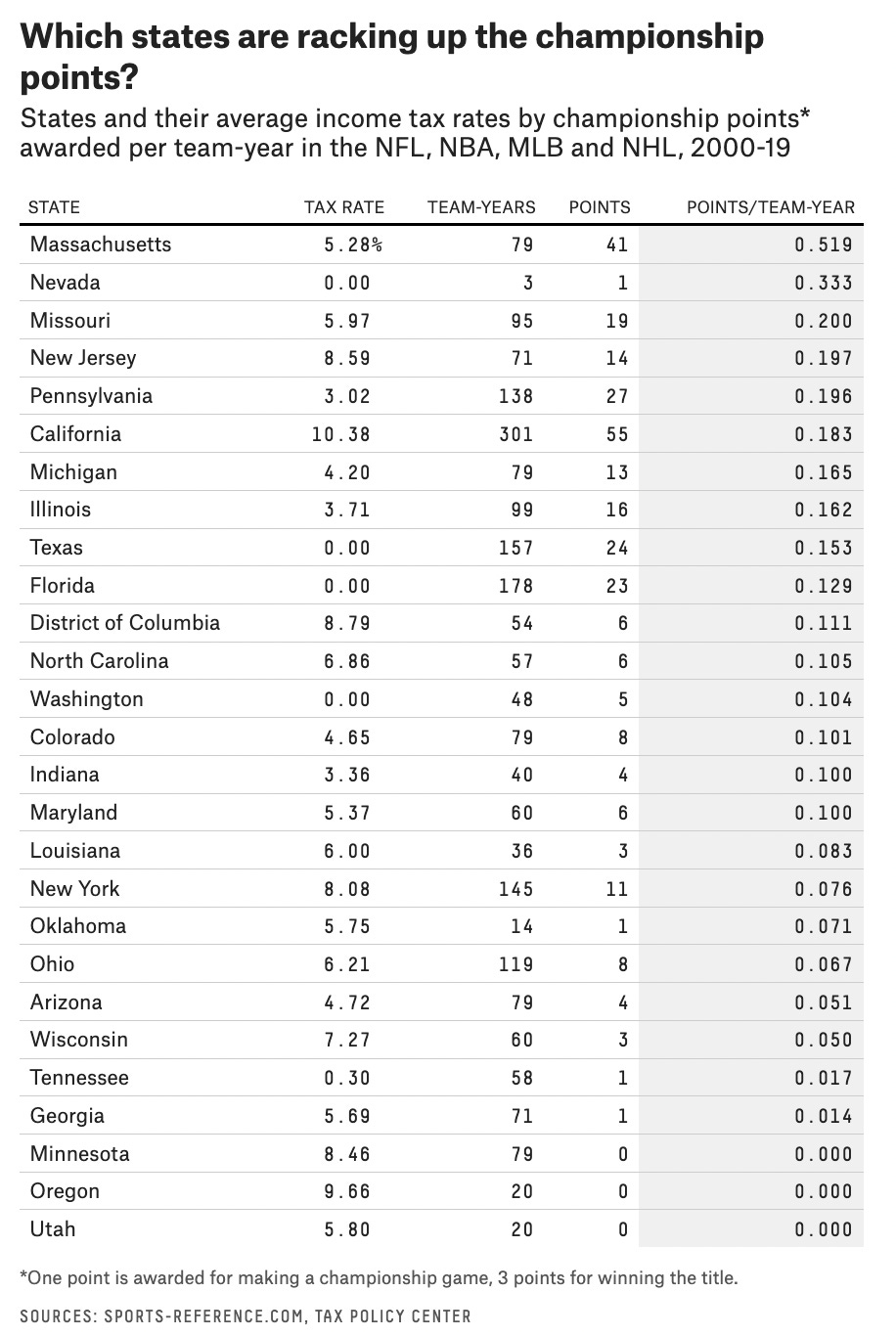Why Athletes Pay Taxes In Every State They Play In
Huddle Up is a 3x weekly newsletter that breaks down the business and money behind sports. If you are not already a subscriber, sign up and join 100,000+ others who receive it directly in their inbox each week. Today At A Glance:The Jock Tax requires professional athletes to pay taxes in every state they play in. So today’s newsletter breaks down how the rule initially came about, whether low-tax states have an unfair advantage, and the real numbers behind pro athletes’ tax returns. This newsletter is also available via podcast on Apple or Spotify. Enjoy! Today’s Newsletter Is Brought To You By Goldin!The world’s top 500 sports cards have an ROI of 855% over the last 15 years, compared to just 175% for the S&P 500 — and there is no better place to start or build your collectible portfolio than Goldin. Goldin is the leading and most trusted destination for some of the most significant pieces of sports and pop culture collectibles. Their marketplace is open 24/7, they have weekly auctions starting at just $5, and there is something for every collector. And here’s the best part: Goldin is offering No Marketplace Fees for items sold up to $10k. So vault and list your items on Goldin’s Marketplace now to enjoy this limited-time offer. I’m a big fan, and I think you will be too. Friends, Professional athletes must pay taxes in every state they play in. This is because of the Jock Tax, a special income tax imposed by cities and states against visiting athletes when they earn money in that jurisdiction. This special income tax is currently enforced in every US state except five: Florida, Nevada, Texas, Washington, and Tennessee. And it can make quite a difference. Take Stephen Curry, for example. He lives and plays in California, yet he paid nearly $1 million in taxes to nearly 20 other US states during the 2018 NBA season. This includes New York, Massachusetts, Minnesota, Wisconsin, Oregon, Pennsylvania, Indiana, Michigan, Ohio, Georgia, Illinois, Louisiana, Arizona, Colorado, and Utah. And Curry isn’t the only one. This tax applies to anyone who earns income in a city or state they visit. Although, professional athletes and high-level entertainers are usually the only ones that are taxed because (1) their schedules and salary are public knowledge and (2) their income is high enough for states to care to track it. But here’s the part you probably didn’t know — it’s all because of Michael Jordan. The Jock Tax dates back to the 1960s, but it wasn’t really a thing until the 1990s. Michael Jordan and the Chicago Bulls had just beaten Magic Johnson and the Los Angeles Lakers in the 1991 NBA Finals. The Bulls then returned to Chicago to hold their championship parade, but the state of California was still bitter about the loss. So California notified Michael Jordan and his accountants that they owed taxes on the money that Jordan earned while playing in California during the NBA Finals. The “Jock Tax” policy was already in place then, but it wasn’t always collected. So Illinois got upset that California was acting petty and decided to pass a new bill famously known as “Michael Jordan’s Revenge” — imposing income taxes on athletes from California and any other state that imposed a tax on their residents. Many other states across the country then followed suit, jumping at the opportunity to tax visiting athletes. And today, nearly every state that hosts professional sports teams has enacted its own Jock Tax Policy, and even a few cities have done it too. US Cities With Jock Tax Policy
This has severely complicated tax returns for professional athletes. Former NFL player Josh Martin said his annual tax return was as thick “as a bible,” and the average NFL, NBA, and MLB player must now file between 8 and 20 tax returns yearly. Patrick Mahomes 2022-23 Season Tax Files
Shohei Ohtani 2022 Season Tax Files
Kevin Durant 2022-23 Season Tax Files
And with athletes being able to save money by living and playing in states with lower tax rates — Florida, Texas, Nevada, etc. — this has directly impacted free agency. For example, when the Kansas City Chiefs decided to trade Tyreek Hill during the 2021 offseason, they gave him two options: The New York Jets or the Miami Dolphins. Hill ended up picking the Dolphins, and it’s not for the reason you might think. “It was very close to happening. Just those state taxes man. I had to make a grown-up decision,” Tyreek Hill admitted during a press conference this past season. And that was a smart move because when you add up the differences between Florida’s 0% income tax and New Jersey’s 10.75% tax rate for workers making more than $5 million per year, Tyreek Hill ended up saving $2.7 million last year alone. Tyreek Hill’s 2022 Tax Breakdown
And this is the exact reason why Floyd Mayweather fought every professional fight he had from 2007 to 2017 in Las Vegas, Nevada, ultimately saving $20 million in taxes. But just because some states don’t require residents to pay income taxes, that doesn’t necessarily mean their professional sports team will win more championships. According to a 2020 study from FiveThirtyEight, there was almost no correlation between states’ income tax rates and how many championships their teams had. Massachusetts (5.28% tax rate) was first on the list because all of their teams won championships during the last two decades (Patriots, Red Sox, Bruins), and the top ten was littered with other high-tax states like Missouri, New Jersey, and California. And Nevada, at #2, is sort of an outlier with their new professional sports team (the Vegas Golden Knights) making the Stanley Cup Final in its first year of existence. But that doesn’t mean athletes should expect this rule to disappear anytime soon. California alone collects hundreds of millions of dollars in athlete taxes each year, including $229 million in 2013. And with the average salary across professional sports drastically increasing over the last decade (and into the future), these taxes will only get more lucrative for each state. Ps. Athletes aren’t the only ones that have to pay Jock Taxes — coaches do too! If you enjoyed this breakdown, please consider sharing it with your friends. My team and I work hard to create quality content consistently, and every new subscriber helps. I hope everyone has a great day. We’ll talk on Wednesday. Interested in advertising with Huddle Up? Email me. Your feedback helps me improve Huddle Up. How did you like today’s post? Loved | Great | Good | Meh | Bad Want More Detailed Sports Business Breakdowns? Subscribe To JPS.The Joe Pomp Show is a 3x weekly podcast where I break down the business and money behind sports. Think of it as the same high-quality work you read here, just deeper. There are exclusive interviews with people like Dana White, Lance Armstrong, and Troy Aikman, and you’re guaranteed to learn something new. Huddle Up is a 3x weekly newsletter that breaks down the business and money behind sports. If you are not already a subscriber, sign up and join 100,000+ others who receive it directly in their inbox each week.
Read Huddle Up in the app
Listen to posts, join subscriber chats, and never miss an update from Joe Pompliano.
© 2023 |





